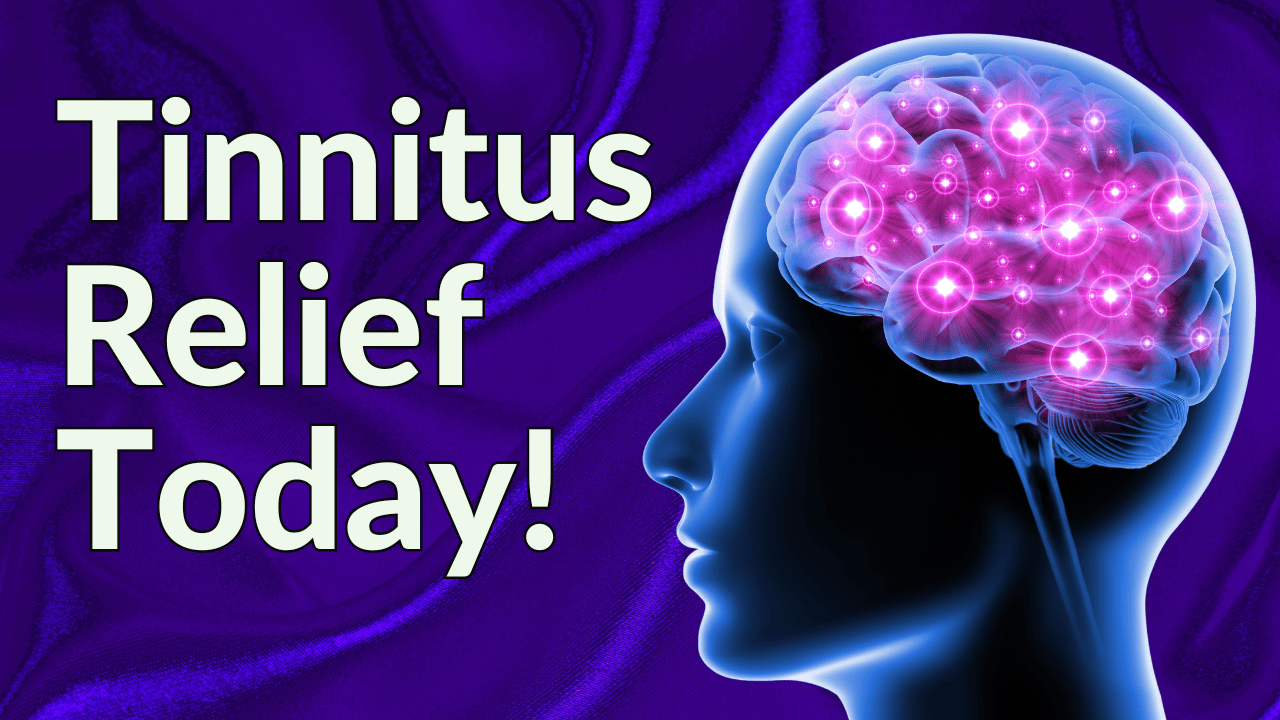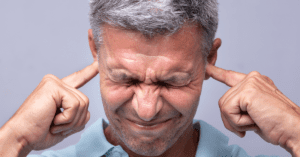For many individuals with tinnitus, identifying a direct cause can be challenging, and improvement in symptoms may take time. Tinnitus often requires a period of exploration to find effective treatment methods, with some patients opting to combine various approaches.
Maintaining good physical health is beneficial in managing any health condition, including tinnitus. Among the numerous factors influencing health, Vitamin B12 has garnered attention, especially among those with tinnitus. It’s essential to understand the potential relationship between Vitamin B12 and tinnitus, and whether this vitamin can have a therapeutic effect in managing tinnitus symptoms. Let’s explore this further.
Tinnitus: Explained
Simply put, tinnitus is the subcortical perception of sound that does not have an external source. In most cases, other people cannot hear the sound, which is called subjective tinnitus and accounts for over 90% of cases. When the symptoms last for more than three months, the condition is known as chronic subjective tinnitus.
"Treble Health helped me turn down the sound of my tinnitus. Now I can breathe, and get on with my life!"


"Treble Health helped me turn down the sound of my tinnitus. Now I can breathe, and get on with my life!"
– Elisa
Book a free consultation to learn which Treble Health solution is right for you. Join Elisa and thousands more who have found lasting tinnitus relief.
Objective tinnitus is a rare type of tinnitus where the sound is audible in the affected ear during examination. This happens when there’s an identifiable physical cause, often an organic illness of the vascular or muscular sort near the affected ear. Patients suffering from objective tinnitus tend to find relief once this problem is fixed.
Tinnitus is a unique condition because the symptoms and their severity can vary among patients. It can also make it harder to diagnose and treat. There’s still a lot we are yet to discover about tinnitus, but we have pinpointed common causes of tinnitus such as:
- Presbycusis, or age related hearing loss
- Noise induced hearing loss
- Ear diseases, deformities, and other conditions such as Meniere’s disease
- Chronic and preexisting conditions such as cardiovascular issues, autoimmune disorders, or diabetes
- Head and neck injuries
- Certain medications
We do know tinnitus is linked to the auditory system and surrounding areas, but we haven’t developed a test that pinpoints the exact location. It isn’t just the ears either, as aberrant neural activity has been linked to the phantom auditory perception, or tinnitus sound.
The most commonly reported sound of tinnitus is ringing, but it can also sound like roaring, clicking, whistling, hissing, pulsing, and a slew of other sounds. Other tinnitus symptoms include confusion, vertigo, headaches, and strange head sensations.
Tinnitus Severity Index Score And Other Indices



Since most cases of tinnitus are subjective, patients play a major role in overcoming their symptoms. Hearing health professionals, such as audiologists and ENTs, use tinnitus severity index scores and other subjective questionnaires to gauge the extent of their patient’s condition in areas such as tinnitus loudness, impact, symptoms, etc.
While none of these tests are ‘perfect’, combining their strengths will paint a better picture of the way tinnitus affects the patient. The Tinnitus Severity Index questionnaire is used to measure the negative impact of tinnitus on the patient’s daily life. Severity index scores range from 12 to 60, ranging from mild to catastrophic.
Besides the Tinnitus Severity Index Questionnaire, hearing professional use:
- Tinnitus Handicap Inventory (THI)
- Tinnitus Severity Scale (TSS)
- Visual Analog Scale (VAS)
- Tinnitus Handicap Questionnaire (THQ)
- Tinnitus Functional Index (TFI)
- Subjective Tinnitus Severity Scale (STSS)
- Tinnitus Reaction Questionnaire (TRQ)
- Tinnitus Questionnaire (TQ)
Tinnitus Treatment
Tinnitus is an extremely complex condition, and while there’s no definitive cure, various treatment strategies can help to treat its symptoms. One approach is sound therapy, which involves masking the tinnitus sounds with white noise or low-level background music, helping to distract the brain from the sound of tinnitus. Tinnitus Retraining Therapy (TRT) is another notable approach in treating tinnitus. This therapy combines sound therapy with directive counseling, aiming to retrain the brain to perceive the tinnitus sounds as less bothersome, thereby reducing their impact on the patient’s daily life. TRT seeks to desensitize individuals to their tinnitus, making it a background noise that does not significantly affect quality of life. Cognitive Behavioral Therapy (CBT) is also effective; it focuses on changing the emotional response to tinnitus by altering negative thought patterns. Additionally, lifestyle changes such as stress reduction techniques can significantly alleviate symptoms. In some cases, hearing aids or sound generators are recommended, especially if tinnitus is associated with hearing loss. It’s essential for individuals experiencing tinnitus to consult healthcare professionals to identify the underlying cause and receive tailored treatment plans.
Medications For Tinnitus
While there are no medications that can directly cure tinnitus, medications may be used to treat some of the psychological effects of tinnitus – such as anxiety, depression, and sleep disturbances. In some cases, medication used to treat the underlying cause of tinnitus, such as inner ear infections, can make the symptoms disappear.
Dietary Supplements For Tinnitus Patients



Our diet plays a major role in our overall health and mental well-being, so where we fall short, dietary supplements can come in handy. The most commonly used dietary supplements include vitamins, minerals, herbs or other botanicals, amino acids, and substances such as enzymes.
While it may appear that there’s a pharmaceutical solution for almost everything, tinnitus is an exception – there is no definitive medication to eradicate tinnitus. Unfortunately, this means that many people tend to turn to heavily marketed supplements that claim to “treat”, or even “cure” tinnitus. While these claims may seem enticing to someone who has been struggling to manage their tinnitus, it’s important to understand that dietary supplements are not regulated as stringently as prescription and over-the-counter drugs. At the of this article’s publication, the U.S. Food and Drug Administration (FDA) has not approved any dietary supplements specifically for treating tinnitus.
There have been studies surrounding dietary supplements and their role in managing tinnitus, which make it clear that they’re unable to reduce tinnitus symptoms. In one survey on the effectiveness of dietary supplements for tinnitus, only 23% of participants indicated they use these products to treat their tinnitus. However, the majority saw no significant improvement in their symptoms, while some respondents even reported that they began to experience louder tinnitus. As such, the American Academy of Otolaryngology advises against recommending popular supplements such as zinc, magnesium, lipoflavonoids, and melatonin for the treatment of chronic tinnitus.
Ginkgo biloba is one of the supplements that is very popular in the online tinnitus community. It is often recommended for treating conditions such as peripheral vascular disease and cerebral insufficiency that can cause tinnitus. The argument for Ginkgo biloba supplements stems from their ability to increase blood circulation around the brain and inner ear, however, there is no strong evidence suggesting that it is an effective treatment for tinnitus.
Always consult your doctor before starting any type of dietary supplement, especially if you’re on prescription medication.
Safety Considerations
Dietary supplements can be beneficial in treating various ailments by filling nutritional gaps in our diets. However, it’s crucial to use them wisely to avoid side effects such as headaches, nausea, liver damage, or even major birth defects. Always consult a doctor before taking any supplements, especially if you’re on medication. For example, Vitamin K can lessen the effectiveness of blood thinners, and Vitamins C and E might interfere with cancer chemotherapy.
Even natural supplements like kava, used for insomnia or anxiety, can cause liver damage. Unlike drugs, the FDA regulates dietary supplements as food, meaning they aren’t required to prove effectiveness before being marketed. Additionally, not all ingredients in these supplements are always listed on their labels, leading to the discovery of fraudulent products by the FDA each year.
Vitamin B12



Vitamin B12, or cobalamin, helps to support the body’s neurologic and circulatory functions by keeping the blood and nerve cells healthy. It contributes to healthy hair, red blood cell formation, and bone health, and supports heart health. It also helps to make our DNA, provides an energy boost, and prevents blood diseases and conditions like megaloblastic anemia.
Vitamin B12 Deficiency
While the human body does not naturally produce vitamin B12, many people obtain sufficient amounts from dietary sources like fish, meat, poultry, eggs, and dairy products. Those who do not consume enough of these foods, or have issues with nutrient absorption, may experience vitamin B12 deficiencies.
Cobalamin deficiency can cause a host of symptoms, including:
- Tiredness and weakness
- Nausea
- Decrease in appetite/weight loss
- Poor memory and concentration
- Sore mouth/tongue
- Numbness/tingling in limbs
- Vision problems and balance issues
- Heart palpitations
- Depression and irritability.
- Dementia
- Infertility
- Yellowish skin
- Developmental delays in children
- Low red blood cell production
Untreated Vitamin B12 deficiency can lead to severe neurological damage due to its critical role in the nervous system. The body works to prevent this deficiency by storing excess Vitamin B12 in the liver, and most multivitamins include the daily required amount. However, a deficiency might indicate more serious health issues and is usually accompanied by mild side effects such as diarrhea and headaches.
The deficiency affects the central nervous system by causing neuropathy, a result of hypomethylation due to a lack of methionine synthase. This restriction in methylation reactions impairs the myelin sheath, leading to the accumulation of the neurotoxin and vascular toxin, homocysteine. The resultant oxidative stress adversely impacts cochlear homocysteine metabolism, suggesting a potential link between Vitamin B12 deficiency and demyelination of neurons in the cochlear nerve, axonal degeneration, and neuronal death.
Furthermore, Vitamin B12 deficiency is associated with a decrease in endocochlear potential by the stria vascularis. This affects the blood flow necessary for the cochlea’s healthy function, leading to an imbalance in the inner ear’s fluids. Such an imbalance can result in sensorineural hearing loss and tinnitus. This raises the question: Can Vitamin B12 be used to treat tinnitus?
Vitamin B12 And Chronic Tinnitus: A Pilot Study
In a randomized, double-blind pilot study at Era’s Lucknow Medical College, researchers investigated the effect of Vitamin B12 on chronic subjective tinnitus in 40 patients, divided into two groups. Group A, with 20 patients, received 1 ml of Vitamin B12 (2500 mcg) injections weekly for six weeks, while Group B, also with 20 patients, received placebo saline injections.
The study found that 42.5% of participants had Vitamin B12 deficiency. Notably, after the Vitamin B12 supplementation, patients in Group A with this deficiency showed improved scores on the Tinnitus Severity Index, indicating a reduction in tinnitus symptoms. However, there was no improvement in patients without a Vitamin B12 deficiency or in Group B who received the placebo.
This pilot study suggests that Vitamin B12 might be effective in treating chronic tinnitus in patients with a deficiency, but its small scale is a limitation. The study also notes that other forms of Vitamin B12 might not produce the same results, and it highlights the need for further research. Additionally, the study mentions a link between folic acid deficiency and premature hearing loss, suggesting a broader investigation of B vitamins in hearing health.
So, Can Vitamin B12 Treat Tinnitus?
In conclusion, managing tinnitus is a multifaceted challenge that often requires a combination of treatments and lifestyle adjustments. Understanding the potential impact of factors like Vitamin B12 deficiency is vital in developing effective treatment strategies. The pilot study at Era’s Lucknow Medical College highlights the potential benefit of Vitamin B12 supplementation in reducing tinnitus symptoms in patients with this deficiency. However, due to the complexity and variability of tinnitus, a one-size-fits-all approach is not feasible.
Effective management of tinnitus involves a personalized approach, considering each individual’s unique circumstances, symptoms, and underlying health factors. Sound therapy, Tinnitus Retraining Therapy, Cognitive Behavioral Therapy, and lifestyle changes are among the various strategies that can offer relief and improve the quality of life for those suffering from tinnitus.
For those seeking comprehensive and specialized care in managing tinnitus, Treble Health’s audiologists have decades of experience in treating tinnitus. Our team offers expert guidance and a range of treatment options tailored to individual needs. If you would like to learn more about tinnitus treatment and the methods that would best suit your personal situation, we encourage you to schedule a complimentary telehealth consultation with one of our tinnitus experts. This is a 20-minute Zoom call that comes with no obligations, and is the perfect opportunity to get answers to all of your tinnitus related questions. To get started, click here.
Next Step: Book Free Consultation
- 75% of patients reduced their tinnitus within three months after following our recommendations.
- "I feel like Treble Health literally gave me my life back." - Randy S. (verified customer)
- Join thousands of people who have reduced their tinnitus after scheduling a free consultation.




















